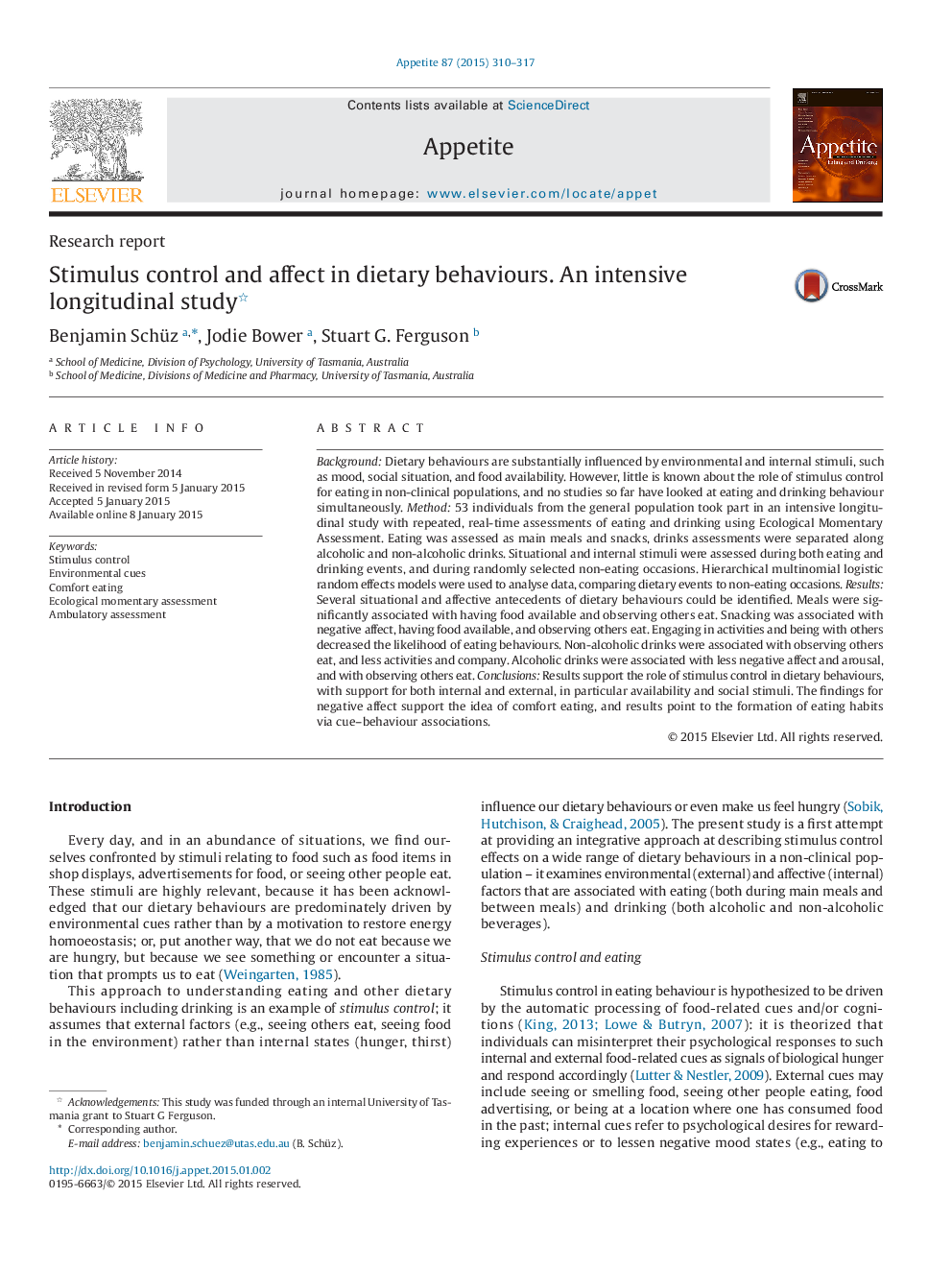| Article ID | Journal | Published Year | Pages | File Type |
|---|---|---|---|---|
| 7309503 | Appetite | 2015 | 8 Pages |
Abstract
Background: Dietary behaviours are substantially influenced by environmental and internal stimuli, such as mood, social situation, and food availability. However, little is known about the role of stimulus control for eating in non-clinical populations, and no studies so far have looked at eating and drinking behaviour simultaneously. Method: 53 individuals from the general population took part in an intensive longitudinal study with repeated, real-time assessments of eating and drinking using Ecological Momentary Assessment. Eating was assessed as main meals and snacks, drinks assessments were separated along alcoholic and non-alcoholic drinks. Situational and internal stimuli were assessed during both eating and drinking events, and during randomly selected non-eating occasions. Hierarchical multinomial logistic random effects models were used to analyse data, comparing dietary events to non-eating occasions. Results: Several situational and affective antecedents of dietary behaviours could be identified. Meals were significantly associated with having food available and observing others eat. Snacking was associated with negative affect, having food available, and observing others eat. Engaging in activities and being with others decreased the likelihood of eating behaviours. Non-alcoholic drinks were associated with observing others eat, and less activities and company. Alcoholic drinks were associated with less negative affect and arousal, and with observing others eat. Conclusions: Results support the role of stimulus control in dietary behaviours, with support for both internal and external, in particular availability and social stimuli. The findings for negative affect support the idea of comfort eating, and results point to the formation of eating habits via cue-behaviour associations.
Related Topics
Life Sciences
Agricultural and Biological Sciences
Food Science
Authors
Benjamin Schüz, Jodie Bower, Stuart G. Ferguson,
